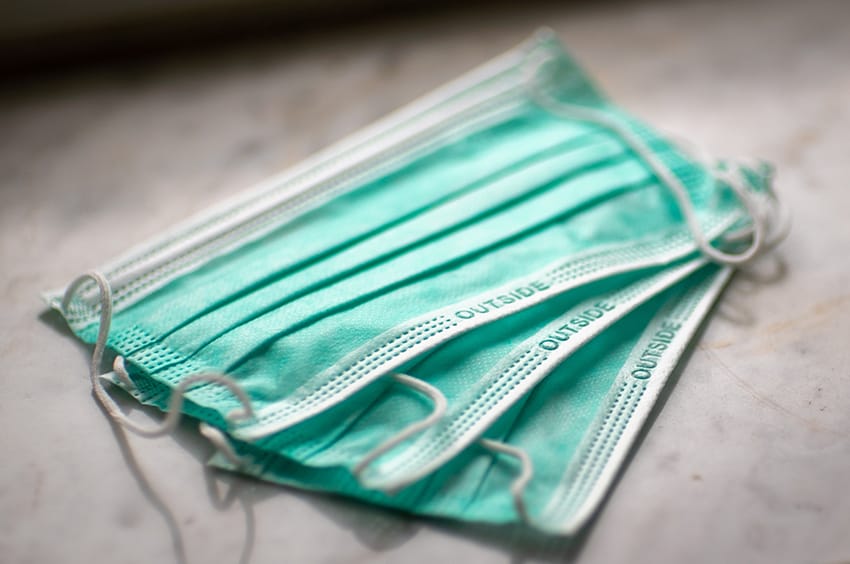
As unemployment rates continue to soar, there are still millions of workers who are deemed essential–who are exempt from state and federal stay-at-home orders–and who continue to go into work. Healthcare workers, grocery store employees, delivery service personnel, and warehouse workers have all been deemed as “essential” workers. Before, these workers often went unnoticed and underpaid, and now they are on the “frontlines” of combatting the Coronavirus Pandemic by providing essential services to the public.
Many of these essential workers have started to strike. The most common form of striking is workers coordinating with each other to all take sick leave at the same time. Healthcare personnel, most often nurses, have been striking for access to personal protective equipment (PPE) like N-95 masks and gloves. Many workers both in the health field and outside of it are striking for hazard pay. Retail workers at companies like Staples and Michael’s have been questioning their jobs as “essential” and claiming mistreatment by such companies. Many essential workers have spoken out either to media outlets, or even to other co-workers about their fears and conditions in their respective workplaces.
For these workers, the protests and strikes are always concerning their safety and protections from the novel COVID-19 virus. But are they protected? Unfortunately, as with many questions of law, it depends on the circumstances.
Many of these workers are not protected under the National Labor Relations Act (NLRA) for a variety of reasons. First of all, many delivery workers are not considered employees by their respective companies. They fall out of the purview of protection under the Act. Second, even if these workers are considered employees, if the reasons they are striking are not related to the terms and conditions of their employment, their striking may not be protected. Certain employees may be protected if they are already in a union and they are striking for the “mutual aid and protection” of all employees–which in the case of many of these strikes may qualify these strikes as protected, pending other questions regarding the details of the strikes.
Without the safeguards of federal law, we look to the New Jersey Law Against Discrimination (LAD). At it’s core the NJLAD protects employees from discrimination in the workplace. In March of 2019, the LAD was amended to include prohibitions against employment contracts that include waivers of any substantive procedural rights relating to a claim of discrimination, retaliation, or harassment as against public policy and ultimately are unenforceable. This meant that employees could not be subject to mandatory arbitration when they had claims of discrimination against their employer. In addition, the amendment included that confidentiality clauses pertaining to discrimination, retaliation, or harassment are against public policy and are unenforceable. These amendments were passed in the wake of the #MeToo movement to provide employees with a sexual harassment claim with a path to sue and publicize their claims. What does this mean for employees demanding better protections amid the Coronavirus Pandemic?
It is possible that employees that decide to strike against their employer because of unsafe working conditions (that are in the control of the employer) related to Coronavirus may have a legal claim. If fired because of their engagement in such activity or free speech, they may claim that their termination was against public policy. It is unclear if such a claim would be successful without additional protection of a Corona-related law. However, these striking employees may at least be eligible to collect unemployment benefits under R.S. 43:21-5.
As of March 19th, the NJ legislators made an amendment to LAD to provide that employers may not discriminate or retaliate against an employee who requests or takes leave because of symptoms or a diagnosis of COVID-19. The employee who requests leave must be restored to their same position at the time they left. However, nothing in this recent amendment includes protections for employees speaking out against unsafe working conditions or exposures. These protections are only for employees that have symptoms or have been diagnosed positive for COVID-19. This amendment to the LAD also includes a requirement that employers must take reasonable action to stop related harassment between employees of discouraging coronavirus related racism. Attorney General Grewal stated that comments made by employees and employers against East Asian workers or statements calling COVID-19 “the Chinese virus” are actionable under the LAD. In addition to racial corona-related discrimination, employers may not take actions against an employee simply because he or she coughed at work.
The protections in place are for employees who experience symptoms, diagnosis as positive, are family care-takers under state and federal law, or are subject to racial or health discrimination as related to coronavirus. However, when it comes to employees demanding safer working conditions or hazard pay, such actions may have the real consequence of termination. Millions of Americans are faced with a difficult decision: their health or their livelihood?
There are a number of bills pending in the NJ legislature but none so far concern labor rights of striking workers.
Aleksandra Syniec, who wrote this post, is a second-year law student at Seton Hall University School of Law. She is also knowledgeable in landlord-tenant law and the information technology.

